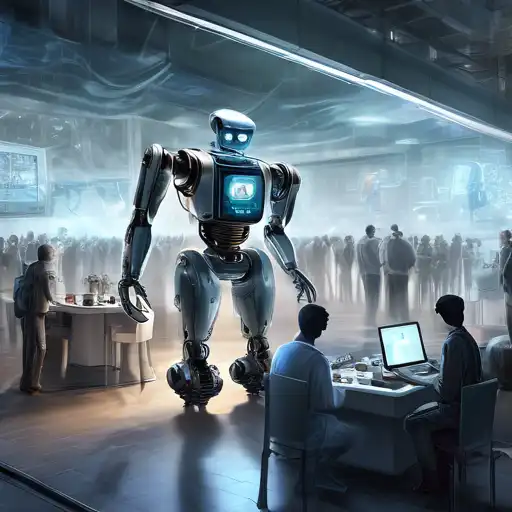The Evolution of Robotics in Modern Society
In the past few decades, robotics has evolved from a futuristic concept to an integral part of our daily lives. From manufacturing floors to our living rooms, robots are now performing tasks that were once considered impossible. This transformation is not just changing how we work but also how we live, offering unprecedented convenience and efficiency.
Robotics in the Home
One of the most visible impacts of robotics is in the home. Robotic vacuum cleaners, like the popular Roomba, have made cleaning floors a hands-off task. Similarly, robotic lawn mowers and window cleaners are becoming increasingly common, freeing up time for homeowners to focus on more enjoyable activities.
Robotics in Healthcare
The healthcare sector has also seen significant advancements thanks to robotics. Surgical robots, such as the da Vinci system, allow for precision operations with minimal invasiveness. Rehabilitation robots are helping patients recover from injuries faster, and telepresence robots enable doctors to consult with patients remotely.
Robotics in Education and Research
Robotics is playing a pivotal role in education and research, providing students and scientists with tools to explore complex concepts. Educational robots are making STEM subjects more accessible and engaging for students of all ages, while research robots are assisting in everything from space exploration to deep-sea discovery.
The Future of Robotics
As technology continues to advance, the potential applications for robotics are boundless. With the integration of artificial intelligence, robots are becoming more autonomous and capable of performing complex tasks. The rise of robotics in everyday life is not just a trend but a revolution that is reshaping our world.
For more insights into how technology is changing our lives, check out our articles on AI advancements and the future of automation.
Challenges and Considerations
Despite the benefits, the rise of robotics also presents challenges, including job displacement and ethical considerations. It's crucial for society to address these issues proactively to ensure that the integration of robotics into everyday life benefits everyone.
In conclusion, the rise of robotics in everyday life is a testament to human ingenuity and the endless possibilities of technology. As we continue to explore and innovate, robots will undoubtedly play an even greater role in shaping our future.
